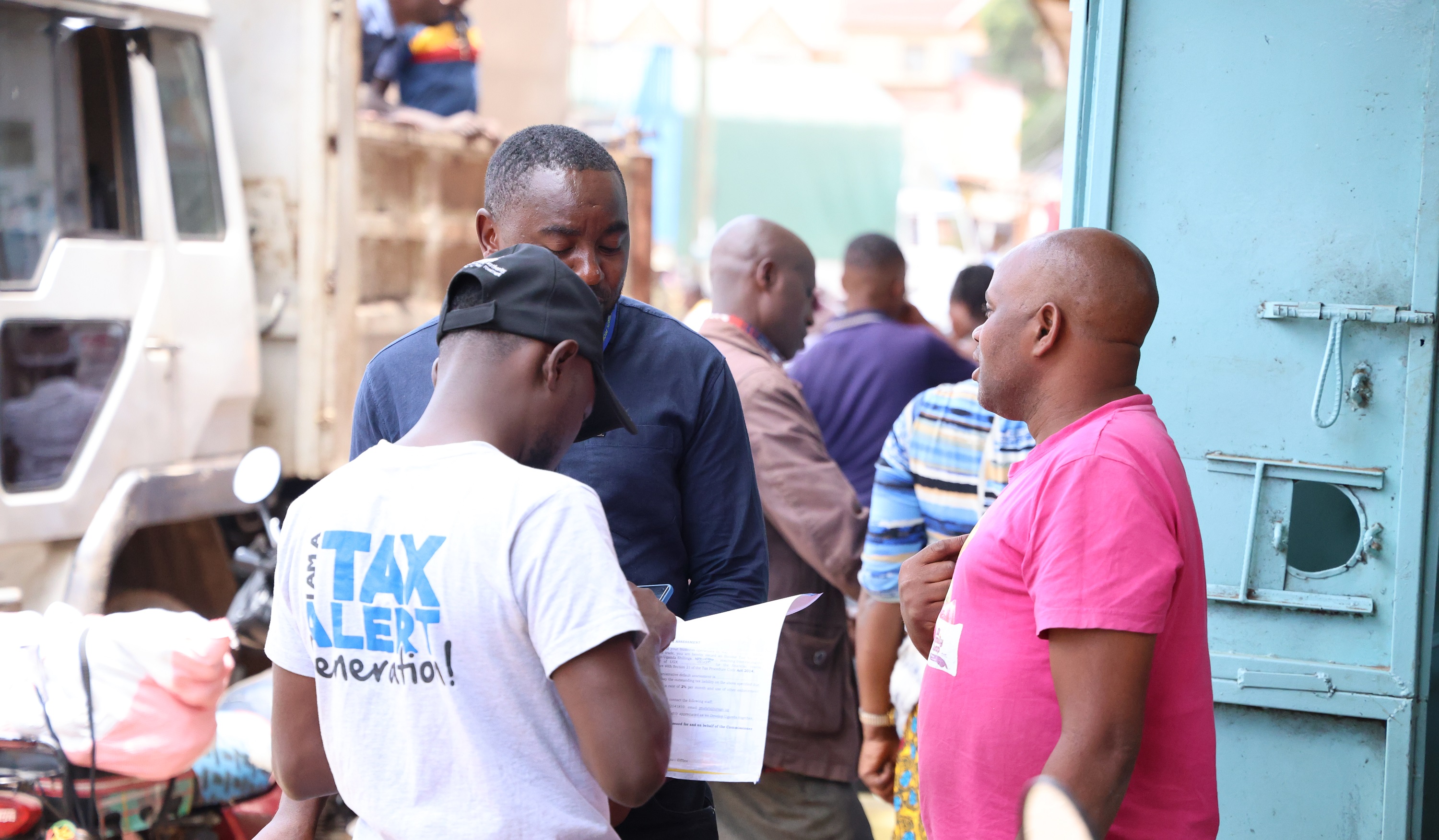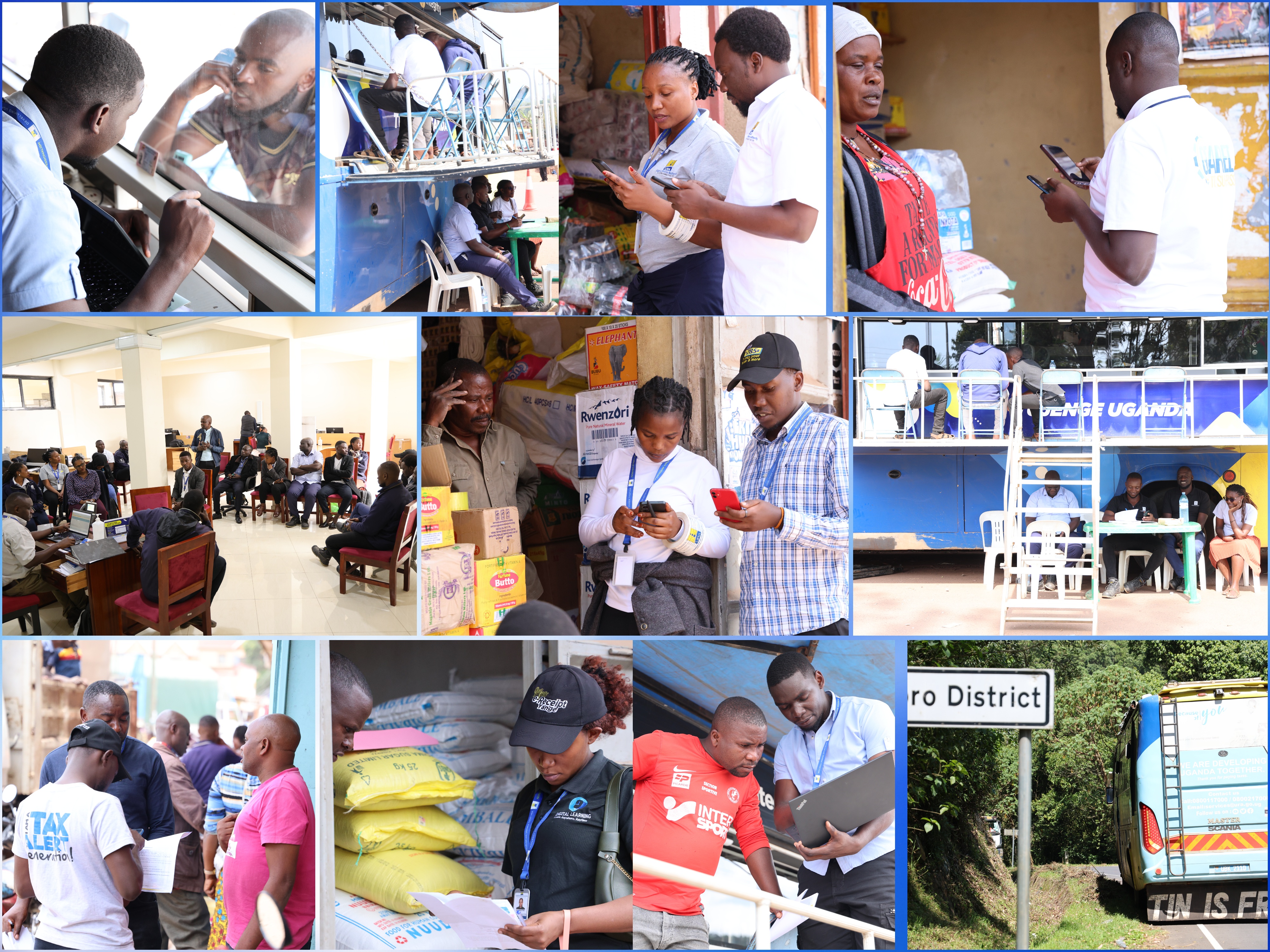
Uganda Revenue Authority has asked traders in Kisoro district to keep proper transaction records to benefit from fair taxation and understand how their businesses are faring.
Ivan Kamukama, the Tax Education Team Lead on the Tujenge Bus told traders in Kisoro Central that URA will never know if the traders’ businesses are making losses or profits when there are no records.
“You keep telling us, you are making losses, but how do verify that information when you do have records of what you have sold on a daily basis?” he inquired, adding, “URA will only know that you are making losses or profits when you keep records of your business.”
The Tujenge Bus reached Kisoro on Monday to assist the Kabale – Kisoro Domestic Taxes and TREP team to engage and educate residents about taxation laws in Uganda.
Kamukama told taxpayers that Uganda operates a self-assessment tax regime where the taxpayers tell URA how much income they make in a financial year for the system to determine how much tax to pay.
“We assess you when you fail to self-declare your income to us. The law stipulates the taxpayer has a right to self-assess their businesses, and URA will at one time audit that business to verify the self-assessments,” he said.
The Tujenge team assisted in assessing businesses in Kisoro for tax purposes and generated Payment Reference Numbers (PRN) for those assessment to enable taxpayers pay taxes assessed.
Addressing the Team before the sensitization engagements, Leah Tumukunde, the Ag. Station Head, Kisoro DT requested the teams to assess businesses fairly and be courteous.
“Go out there and fairly assess businesses that were not assessed before, but please don’t under-assess. I encourage you to be courteous to our taxpayers. Handle them gently and generate PRNs for them,” said Tumukunde.
URA is using two Tujenge Uganda buses to take Taxpayer Education and Registration to hard-to-reach areas. It is also implementing a comprehensive tax education strategy that informs taxpayers about their rights and obligations, tax laws, opportunities, and the costs of noncompliance.
By Kamugisha Kabahweza Allan






No Comments yet!